Detroit voters have power to shape presidential election. The 'threat is indifference'
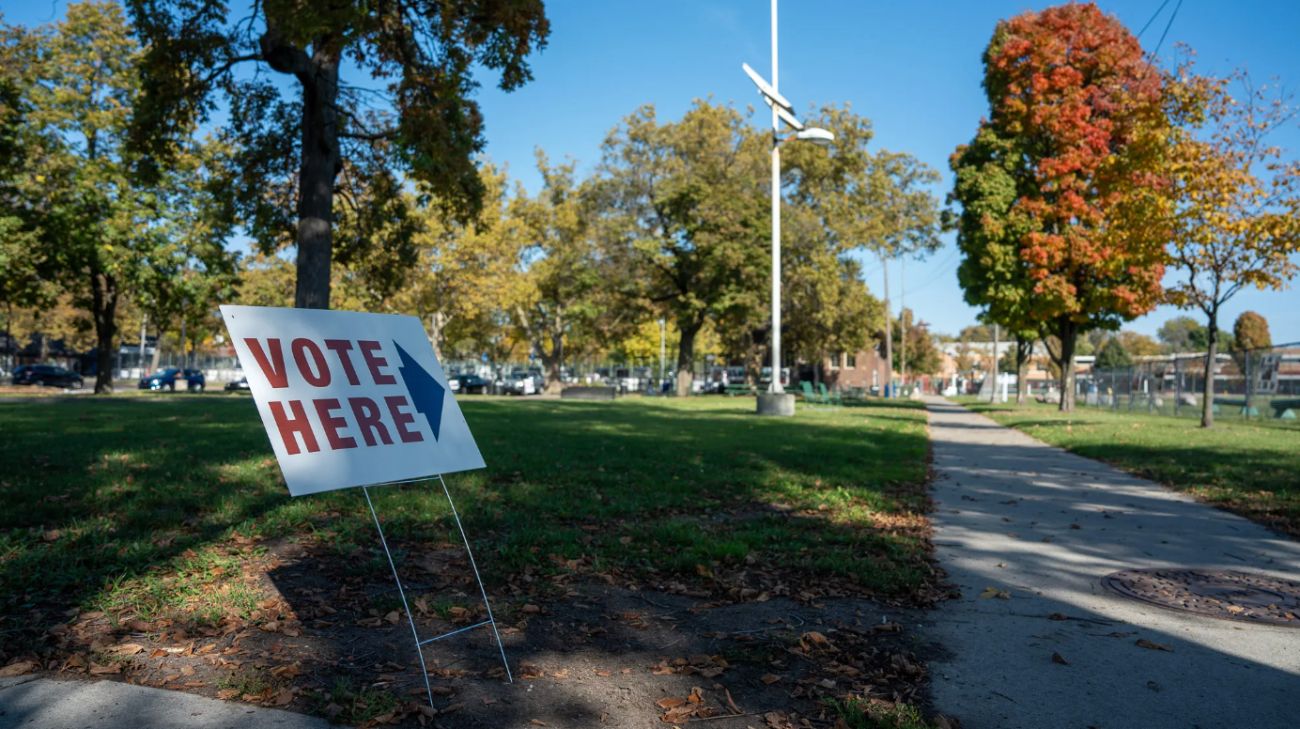
You can’t go anywhere in Detroit without being reminded to vote.
Billboards are strewn along major highways promoting the presidential candidates. Phone batteries are drained by a stream of texts from political groups and incessant campaign ads. Mailboxes are clogged with registration reminders and lists of early voting sites.
Democratic nominee Kamala Harris and Republican nominee Donald Trump have visited the city multiple times and dispatched an army of surrogates to mobilize voters. The name of the game, with days left before the Nov. 5 election, is turning out the faithful and convincing those on the sidelines to cast their ballot.
While both campaigns make their closing argument, Detroiters are taking it upon themselves to bring their friends and family to the polls.
Council Member Scott Benson led neighbors on a bike ride to the polls from Detroit’s Banglatown neighborhood through Hamtramck. Alonzo Marable, a Detroit party promoter, has been creating group chats to discuss political issues with undecided voters. Michael Griffie, a civil rights attorney and consultant, helped cheer on an 18-year-old voter this week who cast their first ballot at an early voting site.
Maruchon Herndon, 23, invited friends over for a party but brought them to the polls instead.
“We’re not going to the club, we’re going to club vote,” she said.
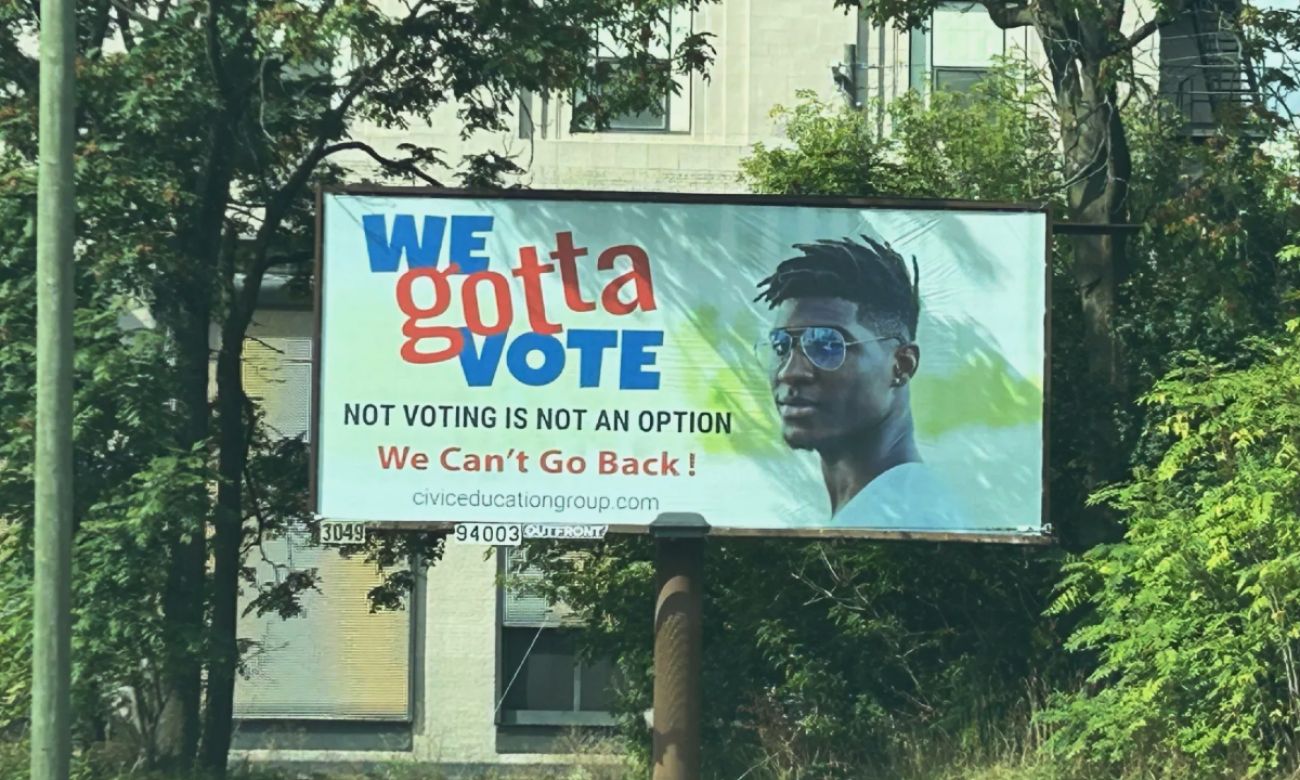
Early voting sites have drawn an unprecedented number of Detroiters; growing throughout the week from 1,300 to 5,000 votes per day. Absentee ballot returns have also outpaced past elections. Detroit Clerk Janice Winfrey expects turnout will exceed elections dating back to 2012, potentially reaching 290,000 votes.
If Winfrey’s prediction holds true, Detroit turnout in 2024 would be on par with the 2012 election. Detroit delivered 281,743 votes to former President Barack Obama in that race. Winfrey said Trump’s Madison Square Garden rally, featuring disparaging jokes that made a punchline out of Black and Latino voters, may have caused a spike in early voting this week.
“Every time Trump opens his mouth, the distinction becomes more stark,” said Charity Dean, CEO of the Michigan Black Business Alliance. “Trump has been able to resonate with people because there are deeply held racist beliefs in our country. Now is not the time to be afraid of diversity and equity. Enough is enough.”
Darryl Woods, chair of the Detroit Board of Police Commissioners, said Trump has disrespected the city and tried cheap stunts to win over voters, like securing endorsements from Detroit rapper Trick Trick.
“A rapper and a few others don’t define Black men in this country,” Woods said. “There’s an army of Black men supporting the vice president based upon policy.”
Jeremiah Steen, a 23-year-old Harris supporter running for a seat on the Detroit school board, said many voters are just ready for the election to be over.
“It’s a vibe check every day,” Steen said. “I hope that peace is brought to the country. It’s been very divisive, especially being in a swing state where everyone is coming to visit.”
Every vote counts
In Detroit, often described as a Democratic stronghold, the question isn’t whether a majority of the city will support Harris, but by how much. High turnout in Detroit typically results in improved fortunes for Democratic candidates.
Detroit represented nearly 9% of President Joe Biden’s statewide support in 2020, helping him win Michigan by a narrow margin of 154,188 votes. Four years earlier, Detroit contributed 6,065 fewer votes to Democratic nominee Hillary Clinton, and she lost the state by 10,704 votes.
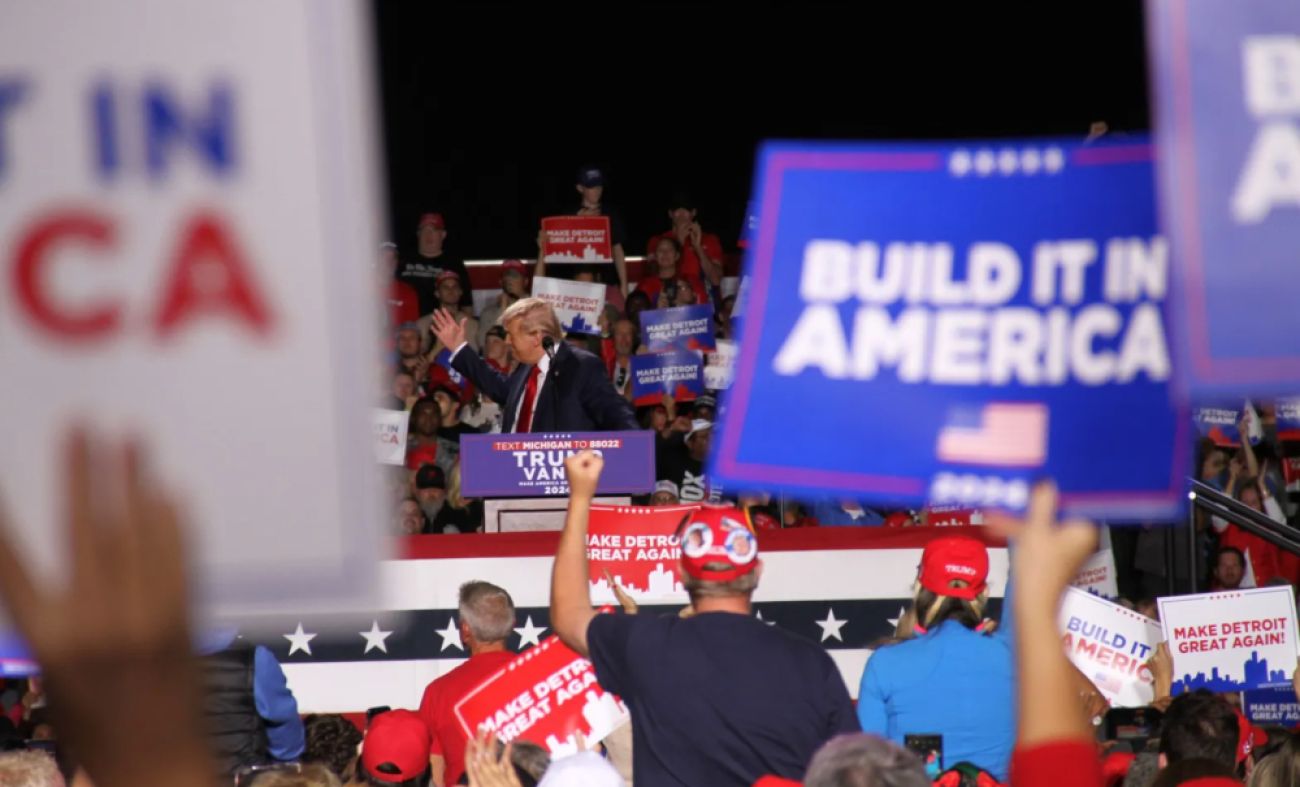
Republicans are a minority in the Motor City, but Trump and his running mate JD Vance aggressively campaigned in Detroit to nurture connections with new supporters. Trump gained voters in his second race, and his campaign expects their support to grow throughout the third.
Regardless, Detroit hasn’t been a major source of Republican votes. Detroiters provided less than 0.5% of Trump’s vote total in Michigan for both of his previous races. Detroit Democrats outnumbered Republicans 18-to-1 in the last election.
Harris sent her running mate Tim Walz to Detroit on Friday to meet with Black political advisers and business leaders during a swing through Michigan. Walz asked how their message was being received here.
Reginald Hartsfield, owner of Southfield nursing center Advantage Management Group, said he’s worried about young voters being swayed by misleading information on social media. Hartsfield told Walz that one man wouldn’t vote for Harris because, to him, the former prosecutor represented a harmful criminal justice system. Hartsfield is still working to convince the man to vote.
“What’s encouraging to me is (him) being engaged,” Walz said. “I worry about the cynicism of this with folks checking out, thinking both sides are the same. The vice president has a broad career on criminal justice reform as well as making sure she was keeping communities safe. It’s a balance.”
Detroit has been a slightly diminishing source of votes for Democratic candidates since providing 11% of Obama’s statewide total in 2008. The trend can be partly traced to population losses – the city has 108,000 fewer registered voters. But, Democrats also view voter apathy as a major challenge to overcome.
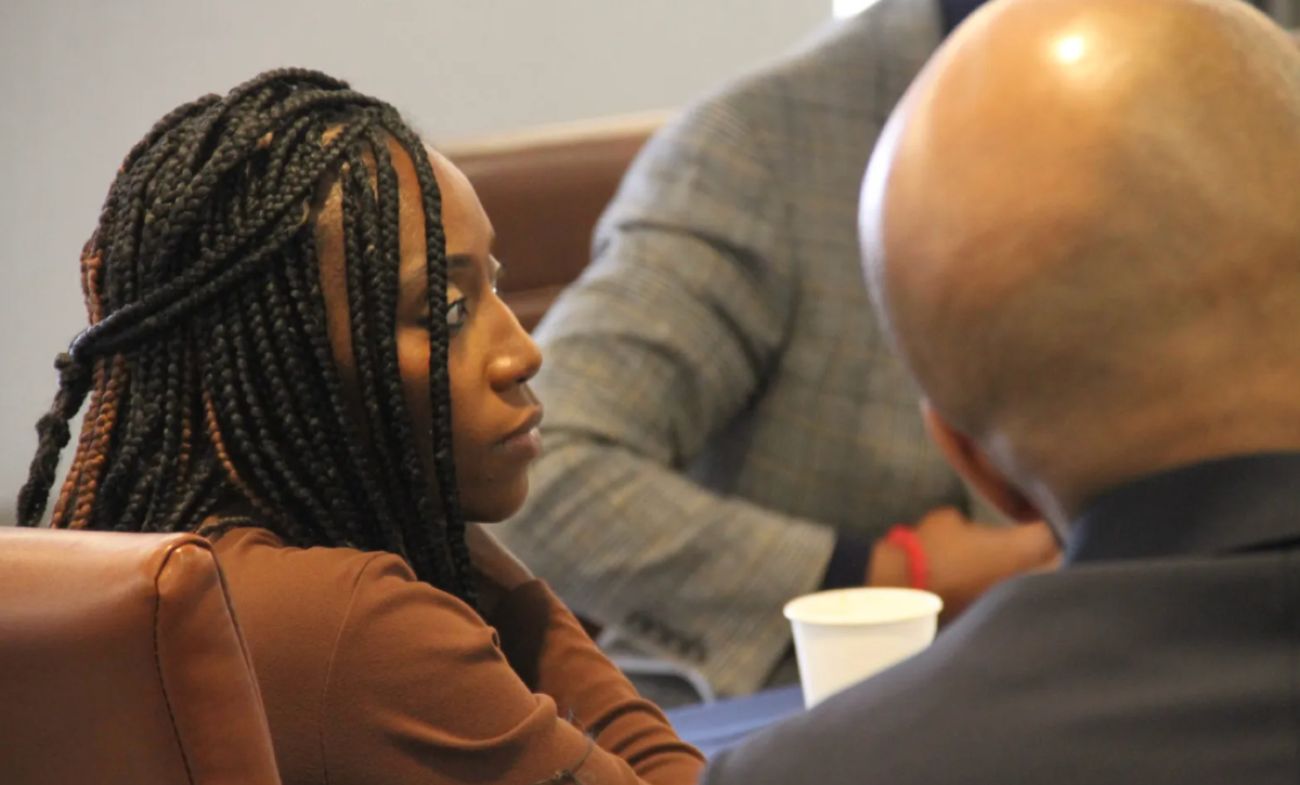
“The threat is indifference,” U.S. Sen. Raphael Warnock, D-Georgia, told members of Black fraternities and sororities during an October visit to Detroit. “Tell brothers they better vote like their lives depend on it, because it does. Sisters, you got the power. If you’re single and a brother asks you for your phone number, tell him to write it on the back of his voter registration card, because we don’t date people who don’t vote.”
The sentiment is echoed in social media ads aimed at young Black men riffing on a popular genre of dating videos. One depicts a Black couple on a date, only for the woman to leave once learning her suitor doesn’t vote.
Some Dems left uneasy
Some local Democrats worried that Harris’ message is not landing with important constituencies typically on the margins of elections, including Arab American and Muslim voters, young voters and Black men.
Detroit school board member Sherry Gay-Dagnogo, a former state lawmaker, has been frustrated with “missteps” in the Democratic effort. She penned a letter signed by nine Black women serving in local offices that recommended broader outreach from the Harris campaign led by elected leaders.
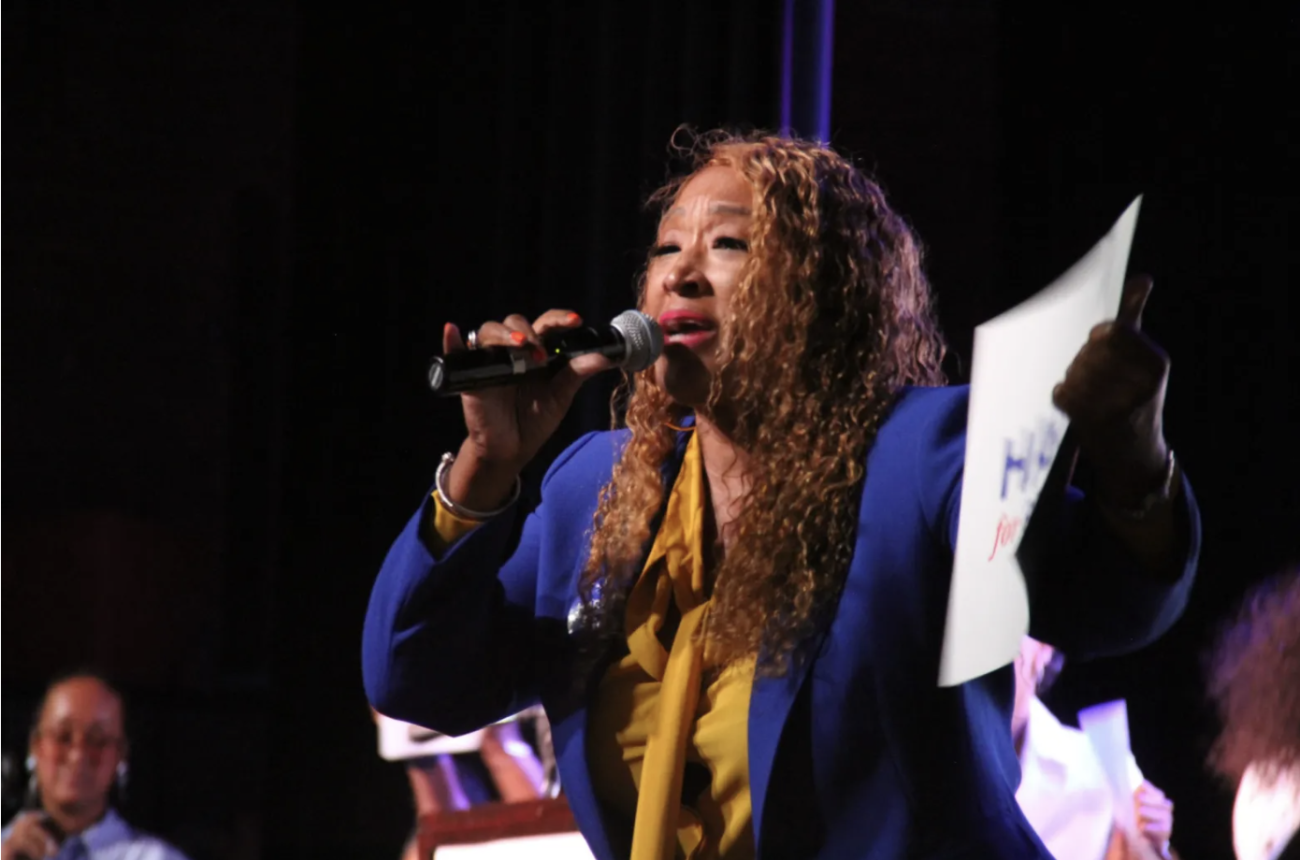
Gay-Dagnogo said the campaign hasn’t emphasized enough key issues like housing and the cost of living. She said Democrats also need to push back harder on damaging ads Trump is running on Harris’ record as a prosecutor.
Harris has outlined plans to deliver $25,000 in down payment assistance for first-time home buyers, boost tax credits for parents and combat corporate price-gouging. Gay-Dagnogo said there’s a “universe of untapped voters,” including some 10,000 people who had felonies expunged and can now vote who aren’t hearing it.
“I’m a die-hard Kamala fan, I want nothing more than for her to win,” Gay-Dagnogo said. “I’m just bold enough to come out and say, ‘hey the house is on fire.’”
Alisha Bell, vice chair of the Wayne County Commission, also signed the letter. Bell said Harris has a good message but it takes work to penetrate limited attention spans and disillusionment.
“People have become disenfranchised with the government,” Bell said. “We’re going to keep the pressure on. Everybody has been on board between fraternities and sororities, HBCUs, everyone is taking their corner of their world and talking to their people.”
Detroit City Council Member Gabriela Santiago-Romero has also voiced concerns that the campaign bungled its message on immigration and Israel’s war in Gaza.
“If she were to lose, it would be because of the war,” Santiago-Romero said. “She can easily win if she stops arming (Israel).
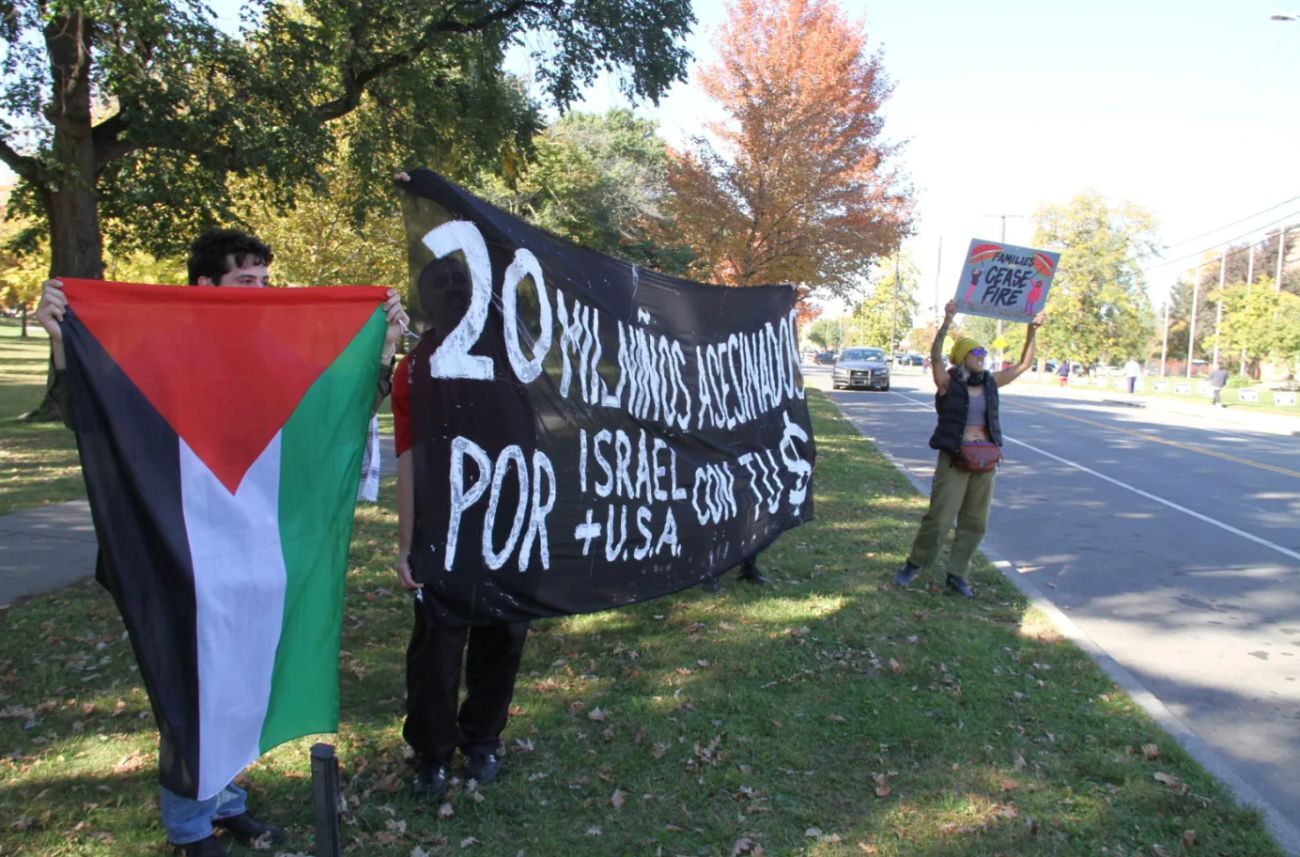
Wayne County has the largest concentration of Arab Americans nationally, and U.S. support for Israel is causing some to abandon Harris. Trump visited Dearborn Friday with a promise to end the war in Gaza.
Trump gained more votes in Dearborn in 2020 than Detroit. His campaign has spent months warming up to Arab American and Muslim leaders in Detroit suburbs.
Imam Mika’il Steward Saadiq is a Muslim leader in Detroit who endorsed Harris after voting uncommitted instead of supporting Biden in the primary. Saadiq said some voters are motivated to punish the Biden-Harris administration in the wake of unimaginable bloodshed.
“When people become inconsolable and traumatized in their grief, there’s not too much you can say,” Saadiq said. “It’s very serious. We know it’s going to be a really close race. You can’t lay the blame of an undesirable outcome at the feet of the Arab American and Muslim community.”
Saadiq said there’s a desperate need for a ceasefire, but Trump can’t be trusted to help Muslims.
“I will not be complicit in creating a pathway for a Trump victory,” he said. “The majority of people in the Muslim community of Southeast Michigan remember the Trump presidency. We remember going to the airports in protest (of Trump’s travel ban on Muslim-majority countries), we remember children in cages.”
Santiago-Romero said the election reminds her of Trump’s surprising 2016 victory in Michigan. She advocated for Harris to visit Southwest Detroit, home to a large number of Hispanic and Latino immigrants. At an October rally, Santiago-Romero said she’s heard community members say they won’t vote because the Harris campaign doesn’t represent their interests.
“I’m sad to say it feels like Democrats are no longer listening to us,” she said. “At the end of the day, this is their race to lose.”
Steen, the DPSCD board candidate and Harris supporter, said Gen Z voters have been plugged into Trump’s media presence on platforms popular with young people, particularly men.
“A good deal of young folks are interested in Trump due to his entertainment factor and aren’t aware of his policies per se,” Steen said. “He’s on podcasts that get more views than mainstream media.”
Steen said some young voters are first-generation participants, with parents or grandparents who may not have prioritized voting. He remembers childhood visits to the polls with his mother and grandmother followed by a family breakfast.
He said making young people comfortable with the voting process is essential to boosting engagement. He organizes “practice at the polls” events through his nonprofit, the Steen Foundation, to familiarize people with filling out ballots and registering to vote.
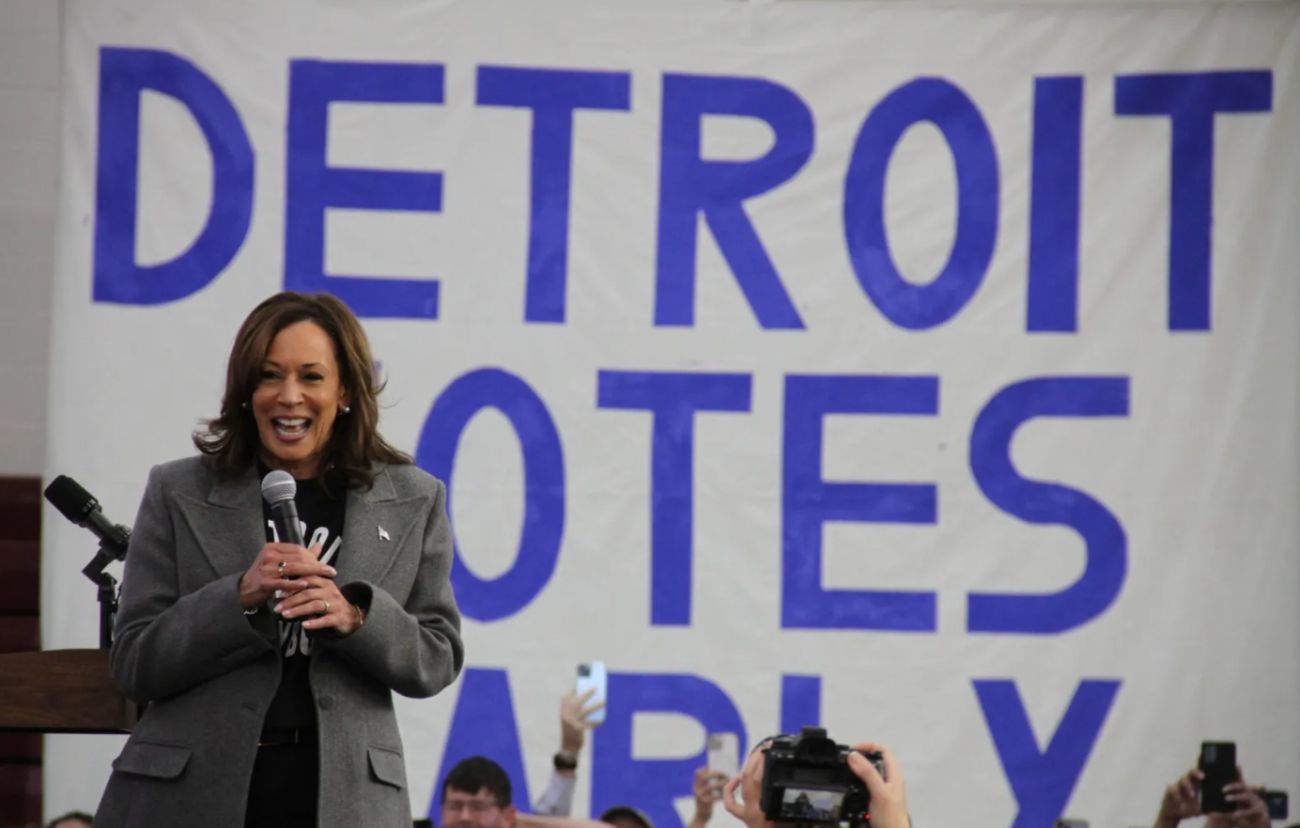
Steen said Gen Z’s sense of immediacy has a major effect on their political engagement — they expect rapid changes and don’t suffer gradual progress, he said.
Marable, the Detroit party promoter, uses his social media platform to influence potential voters. Marable said many voters lack access to good information, often relying on social media sound bites rather than deeper investigation.
Marable said he’s noticed some men appear uncomfortable with the idea of a woman in the White House and dismiss Harris’ record based on misconceptions.
“They say ‘Oh, she’s not Black,’ but If you saw her on the street what would you think she is?” Marable said. “They say that to justify the foolishness. The good thing about a lot of people who talk the negative stuff, they’re probably not gonna vote no way.”
Marable pulled out his phone to show several group chats used to debate political issues with friends.
“This is where it’s at, Facebook and Instagram,” he said. “Let’s talk about it for real.”
Detroit resident Willie Mac Jr. said people are choosing between Harris or indifference. He doesn’t see evidence of a major swing toward Trump.
“I just try to let people know that not making a decision is making the wrong decision,” Mac said. “We don’t feel trust in government. That’s our trauma. You can’t blame us for that, but it’s time to learn how to participate, use our voice and demand what we deserve.
“It don’t stop at the polls. You have to organize after that, stay involved and stay educated.”
See what new members are saying about why they donated to Bridge Michigan:
- “In order for this information to be accurate and unbiased it must be underwritten by its readers, not by special interests.” - Larry S.
- “Not many other media sources report on the topics Bridge does.” - Susan B.
- “Your journalism is outstanding and rare these days.” - Mark S.
If you want to ensure the future of nonpartisan, nonprofit Michigan journalism, please become a member today. You, too, will be asked why you donated and maybe we'll feature your quote next time!




